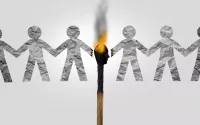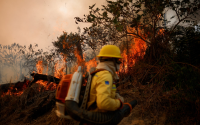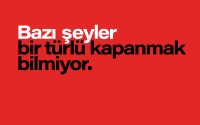15 June 2005 SignOnSanDiego.com
Sheila Watt-Cloutier, chair of the Inuit Circumpolar Conference (ICC), also said Washington was hindering work to follow up a 2004 report by 250 scientists that said the thaw could make the Arctic Ocean ice-free in summer by 2100.
Watt-Cloutier, in Oslo to receive an environmental prize, said the Inuits' planned petition to the 34-member Organization of American States (OAS) could put pressure on the United States to do more to cut industrial emissions of heat-trapping gases.
'It's still in the works, the drafting is still going on,' she said of a long-planned petition to the OAS' human rights arm, the Inter-American Commission on Human Rights.
She said the Inuit aimed to file it before a U.N. meeting in Montreal in December.
The OAS represents 34 nations in the Americas, from Chile to Canada, promoting cooperation and common interests.
Its Inter-American Commission on Human Rights analyses and investigates petitions which allege human rights violations. It has no power to sanction the United States but it could issue a report agreeing with the Inuit.
The Inuit hope that the commission will agree that climate change is tantamount to a U.S. abuse of their human rights by thinning the ice on which hunters depend and by threatening species ranging from polar bears to seals.
Watt-Cloutier said that Washington, the world's top polluter, was doing too little to limit emissions of carbon dioxide from factories, cars and power plants that are widely blamed by scientists for driving up temperatures.
Washington says it is investing heavily in energy research and clean hydrogen fuel but has not joined almost all its allies in signing up for the United Nations' Kyoto protocol, which sets caps on carbon dioxide emissions.
U.N. studies forecast that global warming could bring more extreme weather with disastrous droughts, floods and storms. It could also melt icecaps and drive up sea levels, swamping coastal areas and low-lying islands.
The Inuit total about 155,000 people in Canada, Alaska, Greenland and Russia. The Arctic is warming faster than the rest of the globe because water or bare earth, once uncovered, soak up more heat than ice or snow.
Watt-Cloutier collected the $100,000 Sophie Prize on Wednesday for her work for Inuit rights. The prize is named after 'Sophie's World', a teenagers' guide to philosophy that was a 1990s bestseller written by Norwegian author Jostein Gaarder.
She said she would use the prize to help write a book about the Inuit to be entitled: 'The Right to be Cold'.






